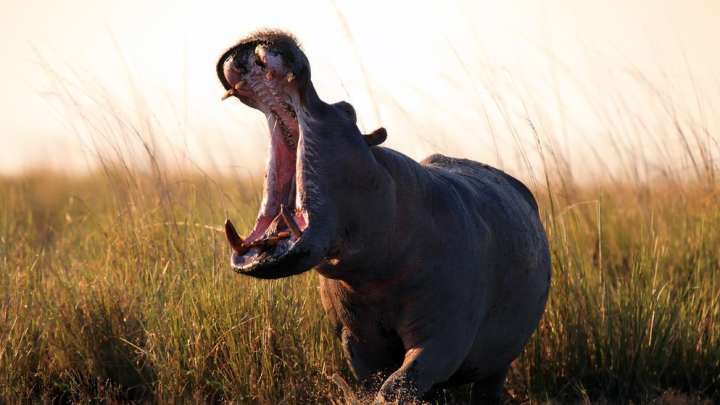Pablo Escobar’s Pet Hippos Are Destroying Ecosystems In Colombia
Pablo Escobar’s pet hippos are wreaking havoc in Colombia. For the first time, scientists have taken a look at the hippopotamuses left behind in South America when the infamous drug lord’s empire crumbled. By no surprise, the hulking invasive species has had a nasty effect on the Colombian aquatic ecosystem.
So, first thing’s first: why are there hippopotamuses, a species native to sub-Saharan Africa, in Colombia and what do they have to do with Pablo Escobar?
When Escobar’s drug cartel was riding high, the “King of Cocaine” splashed his blood-stained cash on a private zoo, complete with rhinos, giraffes, zebras, and hippos. When he died in 1993, most of the animals were rehomed, however, the hippos proved to be too stubborn and aggressive to move. They remained on the grounds of Escobar’s former property and eventually formed a feral population around the nearby lakes and the Magdalena River. The animals made themselves at home, launching their population from a mere four individuals to at least 80 within just a few decades.
Reporting in the journal Ecology, researchers from Colombia and the University of California San Diego have completed their first study of how this invasive species has affected the local ecosystem. Over two years, the team took regular readings of water quality, oxygen levels, and stable isotope signatures, then compared them to lakes without a hippo population.

The main problem is poop. When a hippo goes about its business, its poop sinks down to the riverbed and effectively acts as a potent fertilizer. This causes the water’s algae and bacteria to boom. Not only does this drain the water of oxygen and nutrients for other lifeforms, but it can also result in harmful algal blooms.
“This unique species has a big impact on its ecosystem in its native range in Africa, and we found that it has a similar impact when you import it into an entirely new continent with a completely different environment and cast of characters,” Jonathan Shurin, professor of biological sciences at UC San Diego, said in a statement.
“The effect of fertilizing all those bacteria and algae increases the productivity in the water,” said Shurin. “We found that the lakes are more productive when they have hippos in them. This can change the kinds of algae and bacteria and can lead to problems like eutrophication, or excess algae production that can lead to harmful algal blooms similar to red tides.”
The researchers add that the hippo population is only set to further increase. By some estimates, there could potentially be thousands of individuals in Colombia within the coming decades. However, there’s currently no plan to kick out these unwelcome guests. After all, the species are as aggressive as drug cartel enforcers, killing an estimated 500 people per year in their native home of Africa.
Shurin added: “This study suggests that there is some urgency to deciding what to do about them. The question is: what should that be?”



